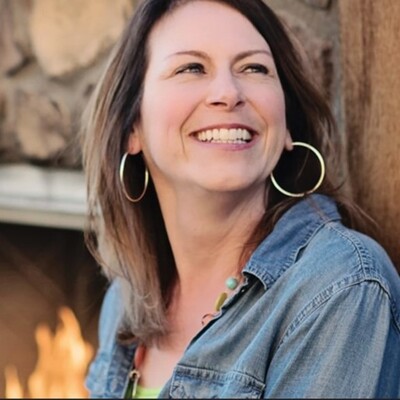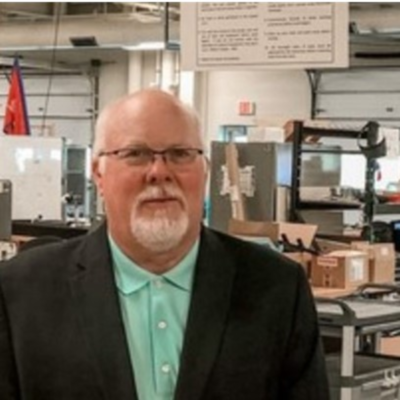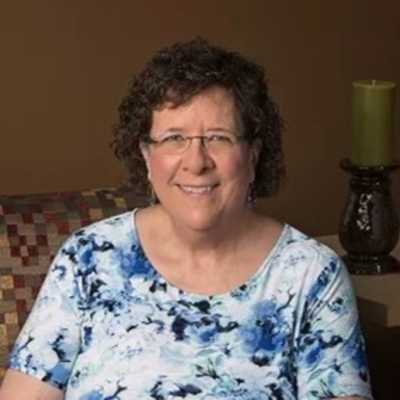
Inside Out - Family Life News
A special news feature from Family Life focusing on how God changes us from the inside, out.
Most Recent Episode
More Episodes

FLN Inside Out: Reclaiming Christian Civility - 07/23/2025
We live in a contentious culture. Author Alexandra Hudson believes it’s up to each of us to reclaim Christian civility by treating each other with the respect we owe and are owed as creations in God’s image. Hudson’s call is to something deeper than being polite--she’s calling us to acknowledge each other’s value even when we disagree.
Hudson worked for the Department of Education during President Trump’s first term and is the founder of Civic Renaissance. Her 2023 book is titled The Soul of Civility. In January 2025 Christianity Today published her article "It's Time for a New Era of Christian Civility."
Read her Christianity Today article here.
Learn about her book, The Soul of Civility, here.

Family Life Inside Out: Current hurdles for Christian ministries which resettle legal refugees - 2/19/25
Current hurdles for Christian ministries which resettle legal refugees
The Inside Out podcast with Martha Manikas-Foster
Government funding for refugee resettlement in the US has stopped for at least 90 days. This leaves America’s often faith-based resettlement agencies like World Relief scrambling to make up for the money the government contributes as a partner in the resettlement process.
Why would refugee agencies have expenses during President Donald Trump’s 90-day pause in resettlement? The federal government and resettlement agencies work together over 90 days to acclimate new arrivals, and many refugees were still in that window when the funds were frozen. During those three months the agencies find housing and job opportunities for the new arrivals, and connect them with medical, educational, and community resources.
The agencies are on their own to support this work during the funding freeze.
Today on this Inside Out podcast Martha's guest is author and speaker Matthew Soerens. He talks about what makes a refugee different from some other immigrants (our government vets them before they set foot on American soil), and Jesus’ call on His Church to minister to the vulnerable (“whatever you did for one of the least of these brothers and sisters of mine, you did for me’ Matthew 25:40).
Soerens is the Vice President of Advocacy & Policy for the Christian humanitarian organization World Relief, an arm of the National Association of Evangelicals and one of the nation’s refugee resettlement agencies. Soerens is also National Coordinator for the Evangelical Immigration Table. He is co-author of the books “Seeking Refuge: On the Shores of the Global Refugee Crisis,” “Welcoming the Stranger: Justice, Compassion & Truth in the Immigration Debate,” and “Inalienable: How Marginalized Kingdom Voices Can Help Save the American Church.”
Connect with World Relief at www.WorldRelief.org
Browse through books by Matthew Soerens from your local library or bookseller.

Family Life: Inside Out: Single at Valentine's Day - Lisa Anderson - 2/12/25
Single at Valentine's Day
The Inside Out podcast with Martha Manikas-Foster
Author, radio host, and podcaster Lisa Anderson joins Inside Out to talk about how single people can reframe the way they look at Valentine’s Day, and what their friends can do to make it more enjoyable.
“I say, don’t let Valentine’s Day hit you like the flu,” Anderson says. “Yeah, sure, it’s made to be a romantic holiday, but who says? I think it’s very helpful for us to say instead, ‘Wow, what can I do with this day? What does it look like for me to celebrate what God has given me and the relationships I do have?’”
Why not download the Family Life "Inside Out" podcast and share it with friends?
Lisa Anderson is the Director of Focus on the Family’s Young Adults and Boundless ministry. Learn more about her from her biography page.
The mission at "Boundless" is to recognize that life is a journey. "The young adult years are full of possibilities and choices that shape who we will become — it’s a season of adulthood that feels boundless. The Boundless community exists to help encourage confidence and joy, as you navigate the path with biblical wisdom and intention."
Connect with Focus on the Family’s Boundless ministry at www.Boundless.org.
Hear, share or download all the archived episodes of Inside Out from www.FamilyLife.org

Family Life Inside Out: Refugee Agencies Scramble to Fill the Gap - February 6 special
Refugee Agencies Scramble to Fill the Gap
A special edition of the Inside Out podcast with Martha Manikas-Foster
Government funding for refugee resettlement in the US has stopped for at least 90 days. This leaves America’s often faith-based resettlement agencies like World Relief scrambling to make up for the money the government contributes as a partner in the resettlement process.
Why would refugee agencies have expenses during President Donald Trump’s 90-day pause in resettlement? The federal government and resettlement agencies work together over 90 days to acclimate new arrivals, and many refugees were still in that window when the funds were frozen. During those three months the agencies find housing and job opportunities for the new arrivals, and connect them with medical, educational, and community resources.
The agencies are on their own to support this work during the funding freeze.
Today on this Inside Out podcast my guest is author and speaker Matthew Soerens. He talks about what makes a refugee different from some other immigrants (our government vets them before they set foot on American soil), and Jesus’ call on His Church to minister to the vulnerable (“whatever you did for one of the least of these brothers and sisters of mine, you did for me’ Matthew 25:40).
Soerens is the Vice President of Advocacy & Policy for the Christian humanitarian organization World Relief, an arm of the National Association of Evangelicals and one of the nation’s refugee resettlement agencies. Soerens is also National Coordinator for the Evangelical Immigration Table. He is co-author of the books “Seeking Refuge: On the Shores of the Global Refugee Crisis,” “Welcoming the Stranger: Justice, Compassion & Truth in the Immigration Debate,” and “Inalienable: How Marginalized Kingdom Voices Can Help Save the American Church.”
Connect with World Relief at www.WorldRelief.org
Find books by Matthew Soerens here.

Family Life: Inside Out: Sports Betting - RaShan Frost - 2/05/25
Inside Out: The Ethics of Sports Gambling
A Family Life Wednesday News Feature
Pastor and professor Dr. RaShan Frost joins Inside Out to talk about sports gambling’s many dangers. A former Auburn football player and coach, Dr. Frost now serves as a senior fellow and director of research for the Ethics and Religious Liberty Commission of the Southern Baptist Convention.
“Unfortunately, we don’t speak as a church about gambling or the dangers of gambling anymore, and there are several problems,” says Dr. RaShan Frost. “The moral dangers, the spiritual dangers, the financial---and I would also add relational as well.”
A pastor and professor, Frost was a tight end and defensive tackle at Auburn and later a coach. For this Inside Out podcast on sports gambling, he leans on his love for Jesus and his expertise as senior fellow and director of research for the Ethics and Religious Liberty Commission of the Southern Baptist Convention.
“Here’s the danger that we really need to talk about: there’s actually an increase of male to female inter-partner violence,” he says. “There’s actually an 11 percent increase. So, you’re finding that Super Bowl weekend, because of bets and things like that and sports betting, there’s going to be an increase in domestic violence.”
Gambling thrives on making money the singular focus, and Frost points out that this is both idolatry and covetousness.
“So you got the inter-partner violence. You got family violence,” he says. “Also, we see that those who engage in sports gambling also binge drink at disproportionate levels than those who don’t participate in sports betting. We’re seeing physical and emotional health problems, and that’s not even talking about the financial strain. So we’re talking about covetousness, we’re talking about greed, we’re talking about discontent. All of these things are precipitating these other effects. It’s bad not only for the individual, but for families and communities as well. There’s an increase in bankruptcy rates, debt collections, debt consolidation loans, auto loan delinquencies. All of this is happening, and it goes back to the passage where Jesus says, ‘What profits a man to gain the whole world and yet lose his soul?’. Is it worth it?”
Be sure not to miss any Inside Out podcasts by subscribing to the Inside Out original podcast at Apple podcasts, Spotify, YouTube, or Familylife.org.
Archives of Martha Manikas-Foster's interviews are available at www.FamilyLife.org/newspodcasts.

Family Life Inside Out: Christmas All Year - 1/22/25
Christmas All Year
An "Inside Out" podcast from Family Life News
If you’re feeling the post-Christmas blues, this may encourage you: Christmas is too important to put away when we pack up the Nativity set. Journalist Lauren Dunn joins Martha for this Inside Out conversation inspired by Dunn’s “Boundless” article titled “Feeling the Post-Christmas Blues?”
Now that it’s a month after Christmas, maybe you’re feeling that January let-down that comes after all those weeks of store decorations, twinkling lights, and snowman inflatables in all the neighbors’ yards.
If so, be encouraged: we actually don’t have to put away Christmas when we pack up the Nativity set.
“There is so much build up, and then we wake up the next day and it’s over. At least we think it’s over,” says journalist Lauren Dunn. “But it’s really not. Because when we think about what we celebrate at Christmas--how God chose to enter our world, become one of us to save us from the sin that we could never save ourselves from--that’s still true in January. It’s still important in every month of the year.”
Dunn is the author of a 2021 Focus on the Family “Boundless” article titled “Feeling the Post-Christmas Blues?” She recommends that we continue to focus on the great gift of Jesus well after December. “This can be a great time to go through some of that Advent material or readings that maybe we didn’t have time for in December when we planned to go through it,” she says. “We can just really continue steeping ourselves in those truths of Christmas even as we’re flipping the calendar pages.”
Some who feel low in January will benefit from the help of a counselor. Others, feeling the impact of less sunshine, will feel better by getting outside, exercising, and being with friends.
“I think it’s also important in this grayer time of year just to have that mindset shift of reminding ourselves that Jesus came for this, too,” Dunn assures us. “He didn’t just come for the big celebrations and the festivities and the special days—I mean, He’s with us in those. But He came for real life. The daily grind.”
He came to be with us in our “every day.”
“Jesus came and lived with us. Day in, day out. He became flesh and dwelt among us," she says. "And even when He returned to heaven, He sent us the Holy Spirit. And so really, we can always, always celebrate that.”
Hear Martha Manikas-Foster's conversation with Lauren Dunn during this Inside Out podcast. And why not subscribe to this original podcast at either Apple podcasts, Spotify, YouTube, or FamilyLife.org?
Read Lauren Dunn’s orginal article that inspired this conversation from the website of Boundless, an online community of young adults.
Read more of her writing:
Listen, share or download additional episodes of Martha's "Inside Out" from www.FamilyLife.org/newspodcasts.
#InsideOut

Inside Out: Darren Hercyk - Serve with Christmas Momentum
Christmas Momentum
The Inside Out podcast with Martha Manikas-Foster
We can ride the momentum of Christmas into the new year by loving Jesus in a way He’s asked us to: by serving others, no matter their nationality, citizenship, or beliefs. Mercy ministries veteran Dr. Darren Hercyk joins Martha for this Inside Out conversation.
We don’t need to leave Jesus in the manger now that Christmas is over. We can live out our commitment to Him this new year by serving others as He told us to, no matter the person’s nationality, citizenship, or beliefs.
That’s because each person has value, says Dr. Darren Hercyk, who reminds us that Jesus said that when we love those in need, we’re loving Him. Hercyk and his family have experience with this. They’ve lived in some of the most challenging places in the world as he’s worked with Compassion International, Save the Children, and Catholic Relief Services.
“God created human life distinct from all other life,” Hercyk points out. “And as we read in Genesis 1:27, we are created in the image of God. He created us with infinite value, inherent worth, and God has chosen to work through this prized creation to change the world.”
Jesus used the example of the Good Samaritan to illustrate the kind of love Jesus wants us to extend to others—including people very different from ourselves.
“Love is not just for those in our own family, just those that look like us or that we’re familiar with or comfortable with,” Hercyk says. “He really extends it to actually the Samaritans, who were people that were despised.”
Most of the time, we’ll need to be deliberate about getting to know a person if we’re going to follow Jesus’ lead. “We have to be intentional for our lives to intersect those in need,” he says.
Hercyk now teaches as an assistant professor at Liberty University and serves as the director for its online Master of Arts in Humanitarian Action and Human Rights. He instructs his students to approach compassion ministry in two steps.
“The first way is to identify those lives that you know that could benefit you’re your time and concern. Could be someone in your church, perhaps they are no longer able to attend, perhaps it’s a student that’s struggling. God has placed you in your community for a reason, so within that, identify who those people are.”
But we won’t already be on a first-name basis with everyone God has in mind for us to help and learn from.
“Let me give you a second way,” he says. “Partner with another local organization. Could be a non-profit, could be a school. For me, the last three years I’ve been involved in an assisted living facility. I met someone there, she said she had a need, I started with the question: ‘how can I help?’”
God intends to accomplish much of His work in the world for people He created and values, through people he created and values.
“You want to be able to say, ‘I see you and you matter.’”
To learn about Dr. Darren Hercyk’s 2024 book on this topic, The Last Mile in Ministry: Raising the Bar in Mercy Ministries High Enough to See the Image of God, select the link here.
Listen to our full conversation by playing this podcast.
#InsideOut
Air Date: January 8, 2025

Inside Out: Offline Gifts that Help You Connect - 12/11/24
Offline Gifts that Help You Connect
The "Inside Out" Podcast from Family Life News
Dr. Kathy Koch joins Martha Manikas-Foster for an Inside Out conversation on the kinds of gifts that can help children and teens connect with others offline.
Kids are focused on their screens and it’s limiting their development. But caring adults can make a difference.
“They don’t have healthy relationships with people that they see face to face—hard to get them to really engage—and that’s because they don’t have experiences with that, and they’re satisfied by their texting relationships,” says educational psychologist and author Dr. Kathy Koch. Koch is founder of the ministry Celebrate Kids, Inc.
“If you’re concerned about the young people you know who are too much into their screen and they’re not into the offline activities that you believe are life-giving, then demonstrate that,” she says. “We need to demonstrate a vibrant relationship with the God of the Bible and a vibrant relationship with people we love.”
Adults have a role in helping children and teens enjoy unplugged activities and relationships. And, as it’s a gift-giving time of year, they can do that by choosing gifts that encourage face-to-face interaction and offline creativity and problem-solving.
It’s important, Koch says, to look for games and activities that require more than one person to play. “Don’t buy them something that they can isolate with,” she says. “Because they’re already isolating with their screens.”
The kinds of gifts Koch is especially excited about may be the most difficult to wrap. “Give them experiences,” she says. “Why? Because they do them with someone else.”
Koch recommends botanical gardens, zoos, presidential libraries, and museums. She’s even a fan of factory tours. “They’re not going to ask for that as a gift,” Koch says. “But you know that you would enjoy doing that with your grandkids, and then the discussion you have afterward. I live not too far from an ice cream factory. Come on, who would not want to go? Take a tour on how ice cream is made and then you go out for ice cream after.”
Hear more (delicious) suggestions from Dr. Kathy Koch during this 11-minute podcast.
Learn about Dr. Koch, her books, and the ministry Celebrate Kids, Inc. here.
#Inside Out
#FamilyLifeNews
12/11/2024

Inside Out - "Longing for Christmas"
Longing for Christmas
A special pre-Christmas edition of Family Life's "Inside Out" podcast
In a fractured world where teenagers often feel isolated, the weeks of Advent can open up the big picture of God’s continuing connection with His creation and highlight the hope of the Gospel.
“What we want is for our teenagers, for our young children, eventually to come to a place where they know that the deepest longings they ever have will be fulfilled in Jesus. And so even in times of grief and loss and hardship—whatever that may look like—we want them to feel a sense of giddiness and anticipation for Jesus to come and make all things right, for Him to make all things new.” -- Chelsea Kingston Erickson
In a fractured world where teenagers often feel isolated, the weeks before Christmas can highlight the hope woven throughout God’s continuing connection with His creation. In these weeks, known to many Christians as Advent, teens--and everyone else—have a chance to grab onto the meaning of the first coming of Jesus as we anticipate His Second Coming.
“I think they are longing for beauty and truth and goodness,” Chelsea Kingston Erickson says of teens. “And many times they don’t know where to find it. But of course we in the church know we have the most beautiful resources in the Gospel to point them to a better world that is coming when Jesus comes again.”
Chelsea Kingston Erickson is the editor of Youth Ministry Content & Director of Publishing for Rooted Ministry. She’s edited the new Advent devotional book for teens titled “Longing for Christmas.”
“When we can connect them to that whole biblical story from Genesis to Revelation and show how it gives hope in their lives today, both socially and in sort of the global picture of things, I think that’s just earth-shattering, life-changing,” she says.
Listen to this eleven-and-a-half-minute conversation Martha Manikas-Foster had with Chelsea Kingston Erickson in this Family Life "Inside Out" podcast.
- Learn more about my guest at www.RootedMinistry.com.
- Learn about her book “Longing for Christmas”, which walks teens along a devotional journey into 25 promises fulfilled in Christ's incarnation.

Unsafe at Home for the Holidays - the Inside Out podcast - 11/27/24
A challenging but important topic, on the "Inside Out" podcast
Domestic violence increases during the holidays. How can you help a friend trapped in domestic violence, or, if you are the person being hurt, how can you get help? Martha’s guests on Inside Out are Scott DeBruycker Safe Journey and Deb Kuehner of The Potter’s Hands.
Unsafe at Home for the Holidays
The seasonal classic “There’s no place like home for the holidays” has an ominous ring for families in violent households, where every year there’s a spike in reports of domestic violence.
“The holidays can often bring additional stress, whether it’s financial pressures, family conflicts, or heightened expectations,” says Scott DeBruycker. “And that can exacerbate tensions in households where domestic violence is already present.”
DeBruycker is development coordinator for Safe Journey in Erie County, Pennsylvania. Operating since 1978, Safe Journey offers victims and survivors of domestic violence with a shelter, counseling, and other services.
“You know, when victims of intimate partner abuse don’t get help, the impact can have profound and long-lasting effects,” DeBruycker says.
Deb Kuehner sees some of those long-lasting effects every day as she works with women who have been trafficked for sex. Kuehner’s the founder and executive director of The Potter's Hands Foundation, the western New York non-profit that's been serving survivors of sexual exploitation for eleven years.
“The majority of the women we serve have experienced violence in their homes from a very young age,” she says. “They believe it’s normal for families to function that way.”
Both DeBruycker and Kuehner say the best way to be a friend to someone caught in domestic violence is by being both a steady, listening presence, and an informed friend who knows the available domestic violence services. “Even talking about options with them, like do you have a family that you could move in with? Are you aware that there are local shelters? There is a domestic abuse hotline number. Those are some of the things that I think are the most helpful,” Kuehner says.
“Avoid blaming them,” DeBruycker adds. “Let them know that help is available. Encourage them to reach out to local resources, but understand that leaving an abusive situation is often a long and difficult process. Be patient. Remind them you’re there for them when they’re ready. Offering emotional support and practical help, like providing information or connecting them with services, can make a real difference.”
Listen to this Inside Out news feature for more ways to help or get help.
If you or someone you love is being hurt at home, you can contact Safe Journey 24/7 at 814-438-2675 or by going to mysafejourney.org.
You can contact the National Domestic Violence Hotline, also 24/7, at 800-799-7233 or by texting the word BEGIN to 88788.
Learn more about Safe Journey at www.mysafejourney.org.
Learn more about The Potters Hands Foundation at www.thepottershandsfoundation.org
To be safe from an abuser when contacting either organization, please be very certain that you are alone or that you are able to click off of the website quickly.
#InsideOut
#FamilyLifeNews

Inside Out - the Holidays and Dementia -11/13/24
One in ten older Americans lives with dementia. Maybe this includes people you love. If so, being flexible and even making a few changes to the way you celebrate the holidays could help everyone feel more comfortable around the table this year.
“We have to realize that due to the changes in the brain, the person is trying to interpret their environment. So, being part of a social event may be upsetting or confusing or stressful,” says Phil Shippers, program director for the Rochester & Finger Lakes Region of the Alzheimer’s Association.
“I think the biggest thing is to be flexible, and perhaps to change our expectations,” he says. “Maybe we try new things. And we want to do this to reduce commotion, to reduce noise and activity, to make the person living with dementia feel more comfortable.”
Even if we’re not organizing the gathering, Shippers says there are practical things we can do to help our loved one living with dementia enjoy the time together. “One of the suggestions that we make is that when people approach the person living with Alzheimer’s or dementia, that they introduce themselves,” he says. “And it doesn’t have to be formal or stuffy. You can just make light of it, saying, ‘Oh, this is your favorite grandson Patrick.’”
We want to preserve each person’s dignity and demonstrate our love. Along the way, Shippers points out, we will make mistakes. “Give yourself some grace as well,” he says. “And just be as positive and really enjoy the moment as much as you can.”
Listen to our Inside Out podcast, where Phil Shippers lists a number of practical ways to make gatherings more comfortable.

